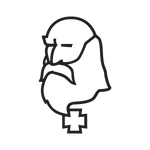On the REAL OG Coffee Blend + Coffee Capitalism

The oldest coffee blend...?
Related to the rise of coffee capitalism? 💰
Yeah that sounds complicated, right?
Our new Mocha Java blend is a blend of coffees from Yemen (Moka) and Java (Indonesia), the “original” Mocha Java blend, if you will. And it’s an ode to the oldest (and most widely produced) coffee blend, Moka Java, as well as the rise of coffee capitalism and the “very fine” “Java & Mocha” blend made famous by Hills Bros. Coffee Company in the early 1900s.

The original blend can be traced back more than 500 years to two of the first shipping ports from which coffee was exported, the port of al-Makha (hence the "Moka") in Yemen and the port in Java. Trade ships would load up on coffee from both and take them back to Europe. And then the two beans were (accidentally or intentionally, who knows) blended together and became the world’s first coffee blend.

(Coffee farmer in Yemen, photo from Qima Coffee)
But what about coffee capitalism? The name itself from Hills Bros. Coffee Company in the early 1900s was a bit misleading (ok, well a lot, it was intentional false advertising)…their “Java & Mocha” blend wasn’t a mix of coffees from Yemen and Java. They sourced coffees that were small beans (like Yemen) and large beans (like Java), but were really just coffees from South America. Java & Mocha (literally “mocha” or chocolate and “java” or coffee) was then merely a coffee blend with rich chocolatey flavor notes.

And that’s not even the real problem with Hills Bros. and the rise of coffee capitalism. The story is a much deeper one, with ties to James Hill, the ruthless “coffee king” of El Salvador, and the atrocities of his legacy that have changed the face of coffee forever. Historian Augustine Sedgewick tells the full story of James Hill in Coffeeland: One Man’s Dark Empire and the Making of Our Favorite Drug.
Though James Hill was no relation to the Hills Brothers, "for many years, much of what Hill (or rather his workers) produced ended up in the familiar red tins of Hills Brothers coffee....Filling those cans of Hills Brothers coffee involved a few different forms of brutality," as author Michael Pollen remarks. Hill was a smart, ruthless businessman and when he arrived in El Salvador, in 1889, and slave labor was no longer. So he brought a concept of wage laborers and got the government to force Indians to move or find work on coffee plantations, through launch a program of land privatization. Building a coffee dynasty on the backs of thousands of farmers turned wage laborers was Hill's specialty, and he made tons of money through his endeavors specifically selling to the likes of Hills Bros.
Sedgewick asks early in the book, “What does it mean to be connected to faraway people and places through everyday things?” And this is indeed the question that we all must ask as our society is globally connected - not just through technology, but through what we eat, drink, and wear. But as Segewick explains, coffee was later used in America as a tool for capitalism. (Michael Pollen's article Capitalism’s Favorite Drug: The dark history of how coffee took over the world is a great place to start if you want to learn a little more!)

(This book is also a must read!)
At Mad Priest, we are committed to continually sharing the hard truths of these complicated, nuanced issues our world faces today. We strive to "educate the curious" about coffee and where it comes from, as well as issues of injustice and inequality. That's the "Get Mad" part of Mad Priest Coffee....we are mad as crazy because we've had a little too much coffee, and mad about the injustice in our world. And we just *might* have some pretty fun ways for you to engage in some of these hard conversations about current issues this year!
Stay tuned.
And stay curious!
#CoffeefortheCurious




Leave a comment